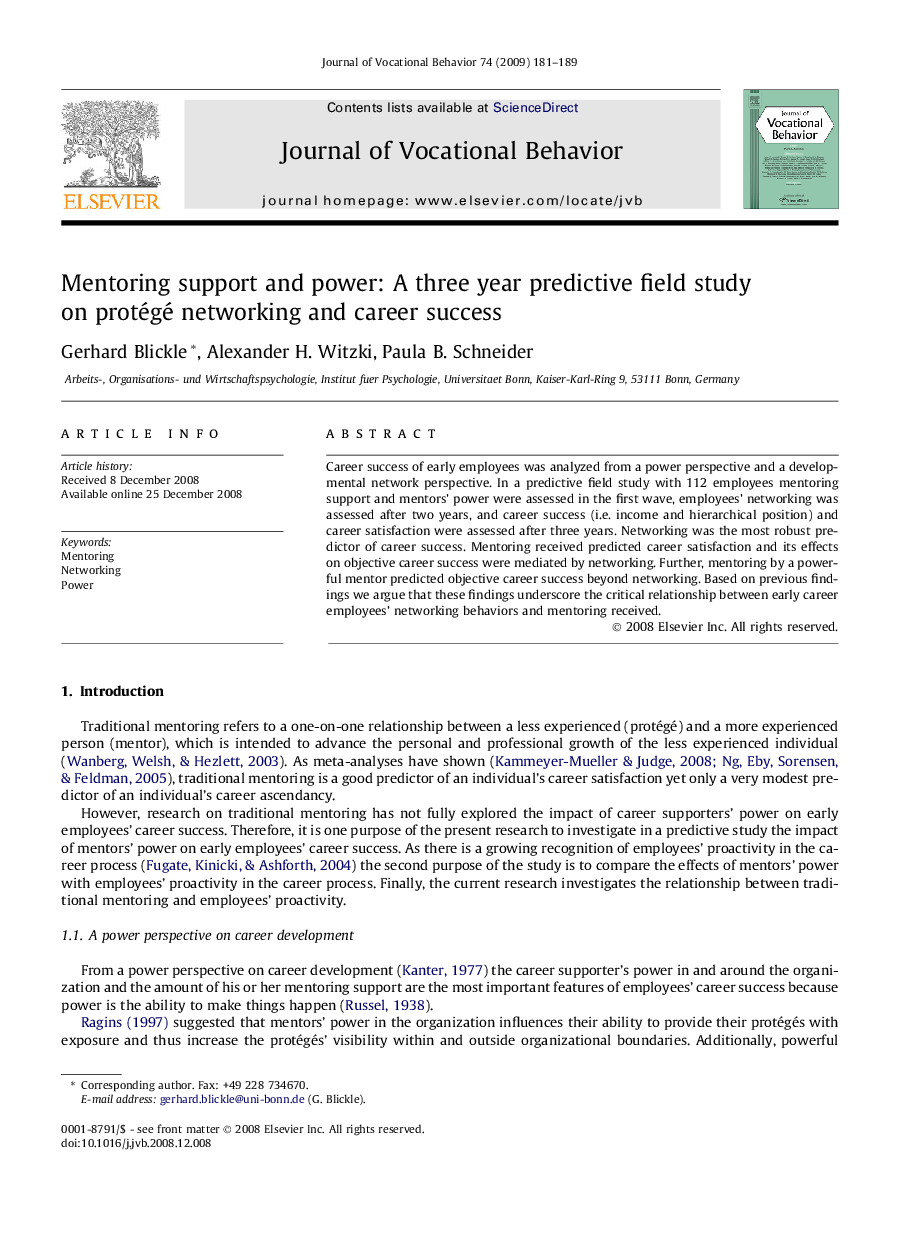| Article ID | Journal | Published Year | Pages | File Type |
|---|---|---|---|---|
| 887449 | Journal of Vocational Behavior | 2009 | 9 Pages |
Career success of early employees was analyzed from a power perspective and a developmental network perspective. In a predictive field study with 112 employees mentoring support and mentors’ power were assessed in the first wave, employees’ networking was assessed after two years, and career success (i.e. income and hierarchical position) and career satisfaction were assessed after three years. Networking was the most robust predictor of career success. Mentoring received predicted career satisfaction and its effects on objective career success were mediated by networking. Further, mentoring by a powerful mentor predicted objective career success beyond networking. Based on previous findings we argue that these findings underscore the critical relationship between early career employees’ networking behaviors and mentoring received.
